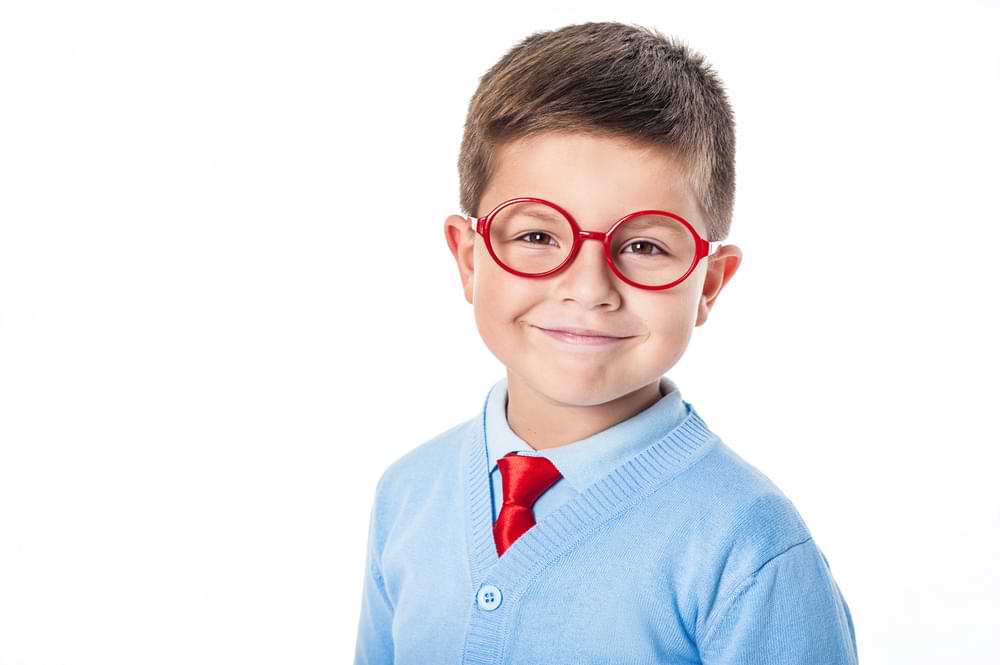Your child is struggling to see distant objects clearly. You suspect they might be experiencing myopia and you’re not sure what to do next. What if something as simple as specialized children’s spectacles could offer the solution?
Myopia is a condition affecting children’s eyes. Due to various environmental and genetic factors, the eyeball becomes elongated, leading to a misfocus of light on the back of the retina, making your child near-sighted. Myopia can’t be cured, but it can be managed — and special lenses like MiyoSmart from HOYA can slow its progression.
My name is Nandita Chowdhury, and as the owner and principal optometrist at Picton Eyecare, I’m passionate about helping families deal with the complexities of eye health. With over 15 years of experience, I want to share what I’ve learned about managing short-sightedness so you can make informed decisions for your child’s long-term eye health.
Eye health and good vision is essential for your child’s academic success and overall well-being — and myopia control plays a vital role. Eighty percent of a child’s learning happens through visual input. So taking action now, during their formative academic years, can improve their quality of life for years to come.
Keep reading to discover why MiyoSmart lenses are a game-changer for myopia management.
3 Key Takeaways:
- MiyoSmart lenses can slow the progression of myopia by using innovative D.I.M.S. technology
- Early intervention is essential as untreated myopia can lead to more severe eye conditions later in life.
- Picton Eyecare is accredited to prescribe MiyoSmart lenses, offers personalized care and regular monitoring to ensure effective treatment.
Understanding Myopia and Its Progression
What exactly is myopia, and why does it seem to affect so many children today? Myopia, also known as nearsightedness, is a common vision condition where distant objects appear blurry. This happens due to the elongation of the eyeball, which causes light to focus incorrectly in front of the retina. In recent years, it has become more common in children.
Genetics play a big role—if one or both parents are myopic, their child has a higher chance of developing it. Environmental factors, such as prolonged close-up work on digital devices or lack of time spent outdoors, also contribute to the risk. The more the eye is exposed to near work without the necessary breaks, the more it stimulates axial growth, worsening myopia.

Why Early Myopia Control is Important
Short-sightedness doesn’t just affect how clearly your child sees the world—it can also impact their academic performance and social confidence. Struggling to see the board at school or participate in sports can be frustrating, especially during such a critical developmental stage.
Beyond the immediate effects, managing myopia early can prevent the need for stronger glasses and thicker lenses as they grow. More importantly, the progression of myopia in childhood often leads to higher risks of severe eye conditions later in life, such as retinal detachment, glaucoma, and cataracts. By proactively addressing the issue early, we can reduce these risks and help protect your child’s long-term eye health.
How MiyoSmart Lenses Work
How do MiyoSmart lenses help control myopia in children? These lenses use cutting-edge technology to not only correct your child’s vision but also slow down the progression of myopia. They feature D.I.M.S. technology (Defocus Incorporated Multiple Segments), which has a dual function. The central focus zone ensures your child has clear, sharp vision for daily activities, while the peripheral defocus zone subtly alters the light signals that the eye receives, helping to slow the eyeball’s elongation, which is a key factor in worsening myopia.
Clinical studies have shown that children who consistently wear MiyoSmart lenses can experience up to a 59% reduction in myopia progression. This means less dependence on stronger glasses as they grow and a reduced risk of more serious eye conditions in adult life.
These lenses are particularly suitable for children aged 6 to 18 with progressive myopia, and they can cater to prescriptions up to -10.00D and astigmatism up to -4.00D. For many children, MiyoSmart lenses offer a comfortable, effective way to control myopia while ensuring clear vision.
To learn more about the special technology of MiyoSmart lenses, watch the following video by Dr Michael Nelson.
Assessing Your Child’s Suitability for MiyoSmart Lenses
How do you know if MiyoSmart lenses are right for your child? The first step is a thorough visual skills assessment, which looks at how well your child’s eyes focus and work together. If their accommodation (focusing ability) or binocular vision is poor, it can affect the success of the lenses. These issues need to be addressed to ensure the lenses provide the best possible results.
The lenses may also not be suitable for children with severe myopia, amblyopia (lazy eye), or other conditions like strabismus. In such cases, different treatment options might be more effective.
Tracking Myopia Progression
Regular tracking of your child’s myopia progression is an important part of the treatment plan. One of the key ways we assess this is by measuring the axial length of the eye. This measurement helps us understand how much, if at all, the eyeball is elongating—a critical factor in the progression of myopia. Monitoring axial length over time allows us to see if treatments like MiyoSmart lenses are successfully slowing down this growth.
Routine eye exams are another important aspect of tracking. For children with progressive myopia, we recommend annual check-ups, though more frequent visits may be necessary in some cases. These exams help ensure that your child’s vision is being managed effectively and allow us to adjust treatments as needed.
The Role of Outdoor Activity in Myopia Control
Can spending more time outdoors really help control myopia in children? Absolutely. Research has shown that spending at least two hours a day outside can significantly reduce the risk of myopia progression. Sunlight exposure plays a vital role in helping balance the eye’s focus between near and far distances. This natural shift helps slow the elongation of the eyeball, which is a major factor in worsening myopia.
In addition to sunlight, reducing screen time is also key. Encouraging your child to follow the 20-20-20 rule—looking at something 20 feet away for 20 seconds every 20 minutes—can help minimise eye strain. Limiting non-essential screen time to two hours a day can also reduce the near-work stimulus that contributes to myopia progression.
Practical habits, like reminding your child to hold books or devices at arm’s length when reading, can also make a difference. Combined with outdoor activity, these adjustments can play a big part in managing myopia naturally.
Choosing the Right Glasses Frames for MiyoSmart Lenses
Poorly fitting frames can misalign the central focus zone of the MiyoSmart lenses, reducing their ability to control myopia progression. It’s crucial that the frames sit properly on your child’s face so the lenses align correctly with their line of sight.
Active children also need frames that can withstand their daily activities. Sturdy, adjustable frames made from durable materials are ideal, as they ensure both comfort and long-lasting wear. Additionally, frames with impact-resistant and UV-protective features can provide extra safety, particularly for kids who spend a lot of time outdoors.
Ensuring a proper fit not only helps with vision but also makes it more likely that your child will consistently wear their glasses, which is key to maximising the benefits of MiyoSmart lenses in slowing myopia progression.
Combining Myopia Control Lenses With Eye Drops
Combining myopia control eyewear such as MiyoSmart lenses (or MiSight Contact Lenses) with therapeutic treatment is often an effective way to slow myopia progression. One commonly used option is atropine eye drops. These drops can help reduce the rate at which myopia worsens.
Atropine works by relaxing the eye’s focusing muscles, which may help prevent the eyeball from elongating further—a major cause of worsening myopia. However, atropine can sometimes cause side effects, such as light sensitivity or difficulty focusing on close objects. That’s why it’s often prescribed at a low dose and monitored closely. At Picton Eye Care, I am a therapeutically qualified optometrist who can prescribe the necessary medicated treatment.
CONCLUSION
Myopia affects a child’s ability to see distant objects clearly, and managing its progression is crucial for long-term eye health. The condition is influenced by genetic and environmental factors, and early intervention with specialized lenses can help reduce the risk of complications.
MiyoSmart lenses use D.I.M.S. technology to slow down myopia progression by creating a clear central vision zone with peripheral defocus.
At Picton Eyecare, we go beyond just providing glasses. We conduct detailed assessments to ensure that your child is a suitable candidate for MiyoSmart lenses and track their myopia progression with regular check-ups. This personalised approach ensures that your child receives the right care and that the myopia control strategy is working effectively.
As an accredited provider of MiyoSmart lenses, we offer the highest level of care in myopia control for your child — schedule your child’s eye appointment with Picton Eyecare today.
You can call us on (02) 4603 2309 or arrange an appointment using the “Book Now” button in the website menu. We are conveniently located in the heart of Picton, NSW. There is plenty of parking available at the back of our store.

B.Optom (UoA), PGOT (UNSW)
Nandita is the principal optometrist of Picton Eyecare. She has over 15 years of extensive experience working in corporate and independent optometry practice. Opening Picton Eyecare in 2022 has fulfilled Nandita’s dream of an independent optometry practice, committed in serving the local community of Wollondilly and surrounding areas.
Nandita is caring and passionate about providing professional, personal and customised solution for every patient. She takes interest in all her patients and employs her skills and expertise to achieve the best possible outcome for the patient. She maintains great relationships with other medical professionals in the area.
Nandita is a local resident and has been working in the Southern Highlands for many years. She has a loyal following of patients who value her clinical and interpersonal relationships.
When not at work Nandita loves spending time with her family.
